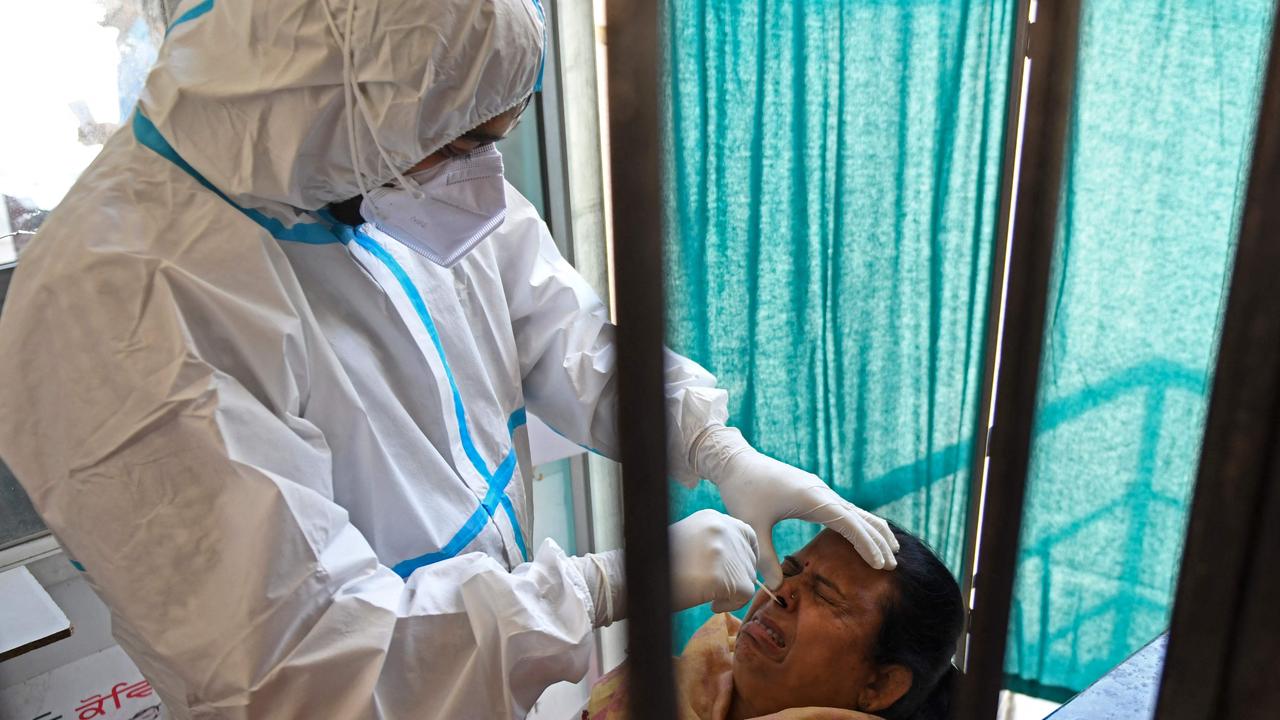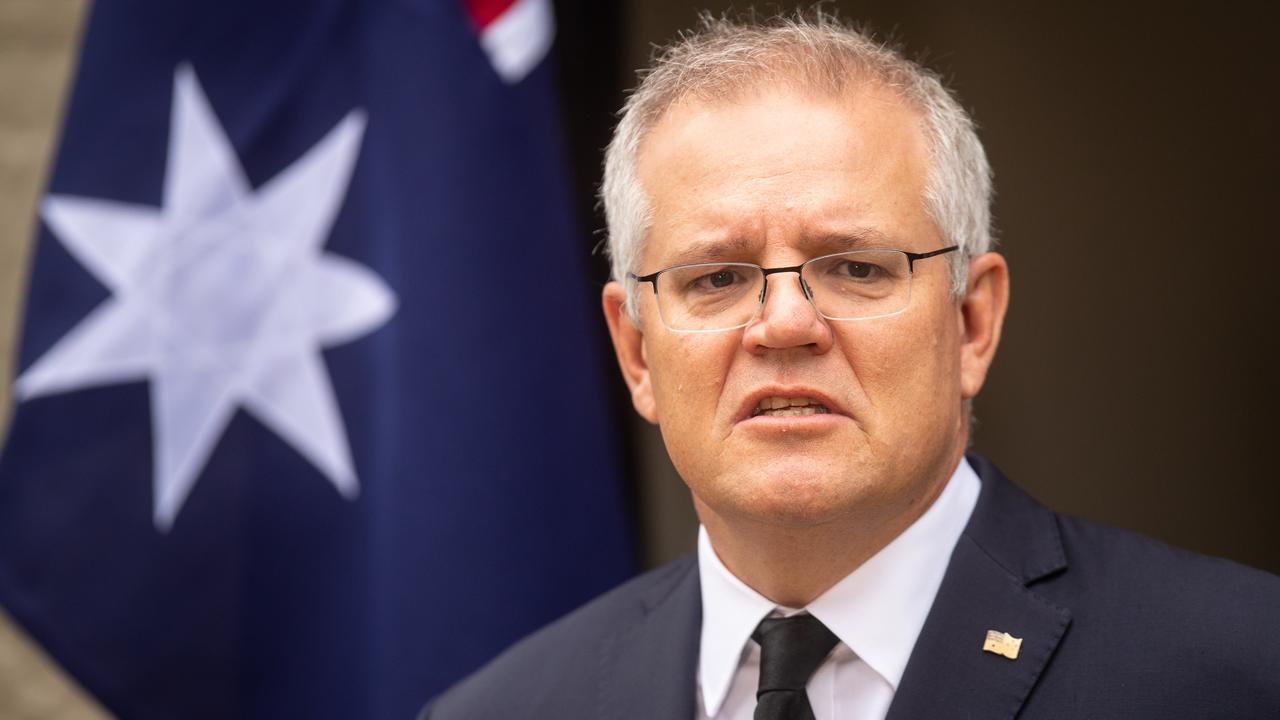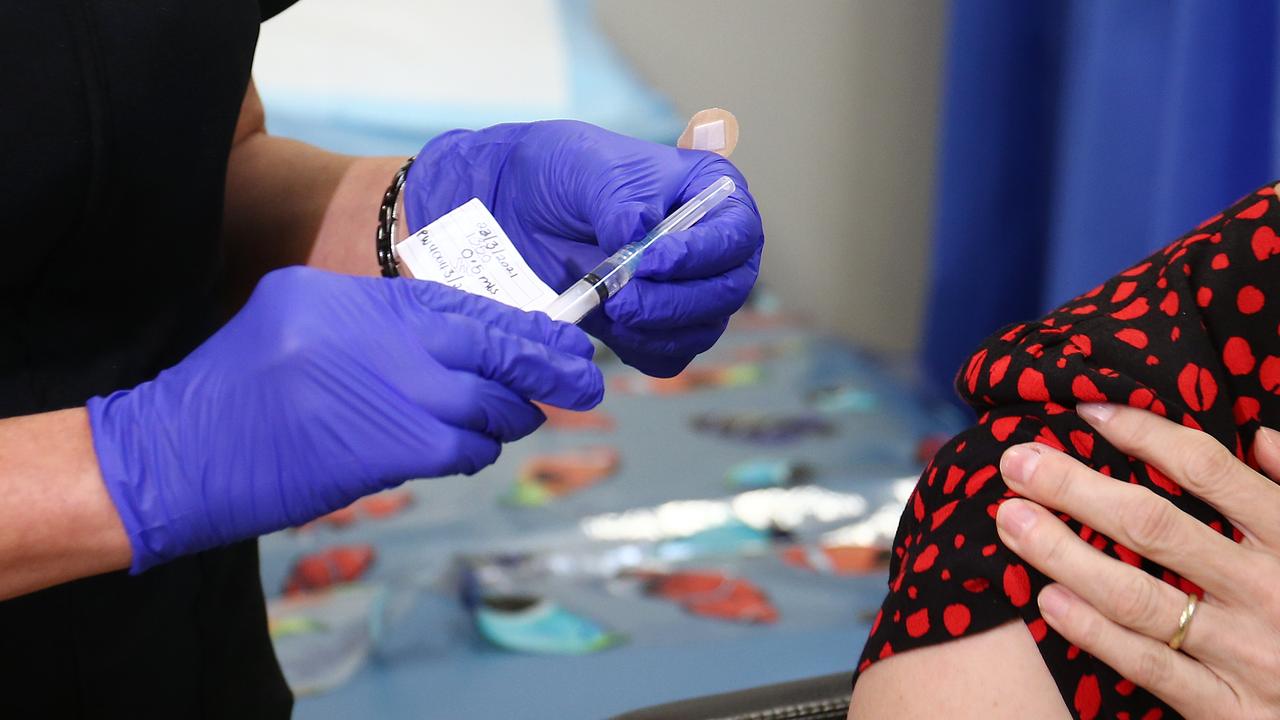Australia’s COVID vaccine rollout leaves us vulnerable to new outbreak
Despite 878 million vaccine doses being given globally, the pandemic is still accelerating – and it’s implausible to think Australia can escape it forever.

Despite 878 million vaccine doses being administered globally, the COVID-19 pandemic is still accelerating at an exponential rate – and it’s implausible to think Australia can escape it forever, experts have warned.
Coinciding with the release of that statistic on Friday was the news that globally, 832,000 new infections had been recorded in 24 hours.
That’s more than double the number reported two months ago and the second highest on record, Burnet Institute director Professor Brendan Crabb and epidemiologist Professor Mike Toole pointed out in a piece for The Sydney Morning Herald.
“In this third global surge, no region has been spared,” the pair wrote, citing surging case numbers – despite vaccine rollouts – in everywhere from Europe, Canada and America to India, Papua New Guinea and Brazil.
Speaking to news.com.au, UNSW epidemiologist and World Health Organisation (WHO) adviser, Professor Mary Louise McLaws, explained that there were clear reasons for the skyrocketing infections in all of these places, despite their economic differences.
“In wealthy countries like Europe there has been poor leadership and poor followership of simple but highly effective public health interventions – physical distancing, mask use, testing and isolation,” she said.
“The accelerator in lower income countries has been severely limited access to vaccines, exacerbated by large populations and circulating ‘variants of concern’.”
RELATED: Warning of massive virus miscalculation

While “the portfolio of eight vaccines available to the world is excellent at preventing severe disease and infection”, Professors Crabb and Toole warned the “highly uneven” distribution of them could have “major implications”.
“New variants – which are more infectious and cause more severe disease – are driving the surges in cases across the world,” they said.
“This means that even as vaccine coverage improves, the vaccines may be less effective than necessary to achieve herd immunity.”
As well as a global “vaccine-plus” strategy – introducing “aggressive suppression” control measures whenever infection rates are high – there is also an “urgent need” for a co-ordinated global effort to vaccinate as many people as possible, they recommended.
“Australia has a major role to play in this effort – through diplomacy, advocacy at the WTO and by good example,” Professors Crabb and Toole added.
Cases at home may not be increasing at the same trajectory (or really at all), but our majority-unvaccinated status leaves us in a vulnerable position – and highlights how important a “rapid” vaccine rollout is, “before variants of concern become the dominant strain”, Prof McLaws told news.com.au.
Concerns were raised last week that Australia would fall behind the rest of the world when it came to administering the jab.
Prof McLaws said that “unless closing of our external borders is planned to continue for another year”, our rollout – initially described as having “NASA-like logistics” – isn’t going according to plan, and that our international borders need to stay as they are until it is.
“Ethically, the border should not be opened until everyone who wants to be vaccinated has been vaccinated. Opening the border brings with it a risk of COVID due to the proportion of the community vaccinated,” she said.
RELATED: Travellers’ shock as bubble opens


With reports from many countries indicating the new variants are causing more severe disease in young people, “if there is a breach in quarantine those unvaccinated 20-to 49-year-olds in the community are the group at the greatest risk of becoming sick and spreading it”, Prof McLaws added.
“So instead of wasting all the sacrifices Victorians and Australians under lockdown gave to eradication, we must wait until the community willing to be vaccinated have had their second shot.
“This will provide them the chance to not acquire COVID and build on their sacrifices during lockdown. Travelling must not be at the risk of unvaccinated Australia’s health.”
Over the weekend, Scott Morrisonpleaded with eligible Australians, including those aged over 50, to get the jab, as our states and territories rally to get the national rollout back on track following the death of a 48-year-old NSW woman from rare blood clotting – which the Therapeutic Goods Administration (TGA) said was likely linked to the AstraZeneca vaccine.
“Right now, the focus is on vaccinating frontline health workers, those in aged care and disability care, and vaccinating our vulnerable populations, particularly our elderly over 70,” the Prime Minister told reporters on Sunday.
“The AstraZeneca vaccine is safe and recommended for use for those aged over 50. There is no change to that.
“We just keep going and doing that and encouraging people, particularly the vulnerable and the elderly, to get those vaccinations because otherwise you are at risk.”
RELATED: Deadly blow for COVID vaccine rollout
If health workers and staff associated with returned travellers remain unvaccinated – or vaccinated staff don’t develop a protective response and become infected – the Australian community remain at risk of coronavirus, Prof McLaws said.
“We must not squander the remarkable efforts that the community have given to eradicate this disease by opening up too soon,” she said.
“I cannot see us opening up safely until next May or June at the earliest. We need to let everyone who wants to be vaccinated get the vaccine, remove the ‘Phases’ after the frontline workers have received their shots.
“The borders cannot be fully opened until 20- to 49-year-olds have been vaccinated as they represent 50 per cent of all cases and they have the greatest risk of transmitting it. The elderly are less at risk if their care staff and this younger age group are vaccinated.”
The “uncomfortable truth”, Professors Crabb and Toole said, “is that surging COVID-19 cases promote new variants that threaten the very vaccine programs that are meant to be the world’s exit strategy”.
“Without simultaneously adopting both widespread vaccination and public health suppression, COVID-19 will not be defeated by anyone,” they added.




